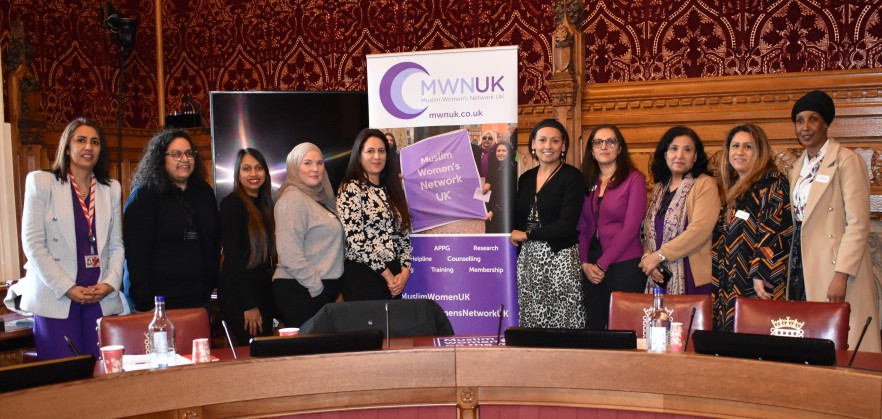
The Muslim Women’s Advisory Group was launched at the All Political Party Group on Muslim Women event which took place on the 31st January at the House of Lords. The group of 12 members will help to strengthen the advocacy work of the APPG on Muslim Women and the Muslim Women’s Network UK (MWNUK), which acts as the Secretariat.
The 12 members of the group are: Farah Farzana (Glasgow), Firzana Ahmed (Bradford), Shukri Mohammed (Liverpool), Zahra ElRapti (Manchester), Shavanah Taj (Cardiff), Ibtisam Belola (London), Niparun Nessa (Bolton), Shalina Litt (West Midlands), Siyyara Ahmed (London), Dr. Anjum Sultana (Birmingham), Atiyyah Younis (South England) and Aisha Adam (Essex).
The Advisory Group members were selected based on their knowledge and insights about Muslim women in Britain and the key issues that affect them, which has been acquired through their professional or voluntary roles and / or because of personal lived experiences.They will act in their independent capacity and will be consulted on how attitudes, policies, practices and laws may be adversely impacting the lives of Muslim women and girls and how their needs can be met so their social, political, economic and health outcomes can be improved.
“The Muslim women have an incredible range and breadth of expertise and experiences on a wide range of issues and sectors such as employment, the criminal justice system, health service, education, mental health, discrimination, racism, youth and children.”
The MW Group will also help to inform research, government consultations and other project work that may be conducted. Last year the CEO of MWNUK, Shaista Gohir OBE was appointed to the House of Lords as a non-party political Crossbench Peer, which will also provide the group of Muslim women a further opportunity to input into policy and law-making such as about gaps in bills going through parliament.
Baroness Shaista Gohir OBE who regularly consult the women said: “The Muslim women have an incredible range and breadth of expertise and experiences on a wide range of issues and sectors such as employment, the criminal justice system, health service, education, mental health, discrimination, racism, youth and children. Their work includes working with some of the most vulnerable women and children in society including survivors of domestic abuse. In fact, two of the members are themselves survivors of abuse. I am looking forward to working with them and am pleased they are willing to share their insights.”
Join Our Movement
Raise your voice and get connected

 1
1